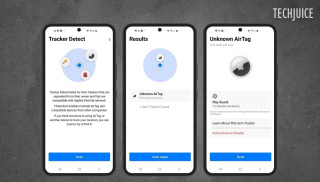WhatsApp beta users can now use fingerprint unlock feature on Android

The most widely used messaging app — WhatsApp has finally introduced its most anticipated biometric authentication feature for Android users. Earlier this year in February, the social networking app added support for Apple’s Face ID authentication for WhatsApp users on iOS. And now WhatsApp has made this feature available to Android users of WhatsApp beta as well but this time the biometric authentication will be based on the fingerprint scanner.
Back in March, WhatsApp’s new security feature was spotted in the beta version 2.19.83 of the Android app of WhatsApp. Through this feature, Android users of WhatsApp will be able to maximize the security and privacy of their app.
So, if you are using an Android smartphone with a fingerprint scanner, you can opt for the Beta version 2.19.83 of WhatsApp and then you can activate it by going into the Settings.
Here are some simple steps that you need to follow to activate the feature.
- Open WhatsApp beta version on Android device and tap on the menu on the top right corner.
- Now tap on Settings and go to Account option.
- Here you will see a Privacy option, tap on it.
- Scroll down and look for Fingerprint lock option. (It will be turned off by default).
- Toggle the switch and turn it on
- WhatsApp will then ask you to touch the fingerprint sensor.
- Afterward, WhatsApp will ask you the time duration you want to set the phone to lock. (You can pick between – immediately, after 1 minute or after 30 minutes.)
Interestingly, for iPhone and iPad users, the authentication works with both Face ID and Touch ID. As of now, the WhatsApp beta tracker website, WABetainfo, has tracked the fingerprint feature but the site also notes that the feature in the Android OS is disabled by default and it won’t work even for the beta users unless the enable it. The site says that the new fingerprint authentication feature will be a unique way for Android users to unlock their WhatsApp using biometric authentication.
It must be noted that the latest security feature does not lock your different chats on an individual basis, therefore once unlocked, the messaging app opens access to all of the user’s messages. The lack of a native lock option on a private app such as WhatsApp has long been awaited by its users, although various third-party apps can be downloaded which will enable a passcode to the messaging app.
I am a writer at TechJuice, overseeing IT, Telecom, Cryptocurrency, and other tech-related features here. When I’m not working, I spend some of my time with good old Xbox 360 and the rest in social activism.
Follow me on Twitter: https://twitter.com/sajeelshamsi
Related Posts
Hackers Can Secretly Track Any Bluetooth Device Using Apple’s Find My Network
Users may effortlessly locate their devices and accessories, including AirTag, through Apple’s Find My network. Researchers from George Mason University found an issue that…
Is ChatGPT Free? Understanding OpenAI’s Pricing and Plans
OpenAI’s ChatGPT, an AI-powered chatbot platform, is constantly getting new functionality added to it. You may make chats more personalized by saving choices in…














